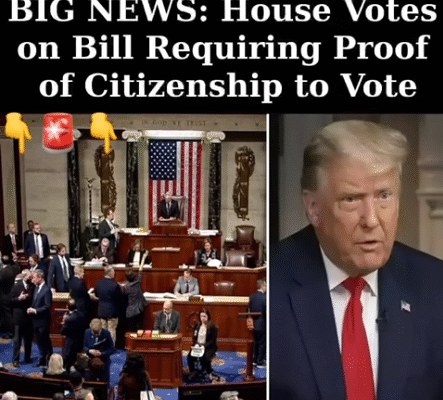Proposed SAVE Act Seeks Nationwide Citizenship Verification for Voter Registration
A new legislative proposal—the Safeguard American Voter Eligibility (SAVE) Act—is making waves in Washington for its potential to transform how voter registration is handled in federal elections. If passed, the bill would establish a uniform national standard for verifying the citizenship status of those registering to vote, replacing the current patchwork of state-level rules with a consistent federal framework.
The Current Landscape: A Patchwork of Rules
Under the existing system, voter registration guidelines vary significantly across the U.S. Some states require applicants to provide official documentation—like a birth certificate or passport—to confirm citizenship, while others rely on sworn declarations without verifying documents. The SAVE Act aims to change that by requiring proof of U.S. citizenship before individuals can be added to federal voter rolls.
What the SAVE Act Proposes
The legislation outlines several key provisions designed to tighten voter registration protocols:
- Mandatory Proof of Citizenship: All individuals registering to vote in federal elections would be required to submit physical documentation, such as a U.S. birth certificate, passport, or naturalization certificate—regardless of how they register (in person, by mail, or online).
- Standardized Verification Across States: The bill seeks to replace state-by-state discrepancies with a nationwide verification system, ensuring a consistent process from coast to coast.
- Removal of Ineligible Voters: States would be tasked with proactively identifying and removing noncitizens who may have mistakenly or unlawfully been added to voter rolls.
- Enforcement and Oversight: The act includes enforcement measures to ensure compliance, including potential federal oversight for states that fail to implement the new standards.
Supporters Say It’s About Securing the Vote
Proponents of the SAVE Act frame it as a commonsense measure to protect election integrity. They argue the bill will prevent noncitizens—either through error or intent—from participating in federal elections, strengthening trust in the democratic process.
“This is not about limiting access; it’s about ensuring the sanctity of the vote,” said one supporter. “Every eligible citizen should have confidence that their vote counts—and that it won’t be diluted by ineligible ballots.”
Critics Warn of New Barriers
However, the proposal has ignited debate. Critics caution that requiring physical documentation could disenfranchise certain groups of eligible voters, including seniors, low-income individuals, and rural residents who may not have easy access to their citizenship papers.
Some also worry that federalizing voter registration standards—traditionally managed by states—could lead to bureaucratic complications and tensions over jurisdiction.
What’s Next for the SAVE Act?
The bill is now heading to congressional committees for further review. Hearings are expected in the coming months, during which both supporters and opponents will voice their views.
If passed, the SAVE Act would mark one of the most sweeping changes to federal voter registration in decades—establishing a single, nationwide requirement for proving U.S. citizenship as part of registering to vote in federal elections.
